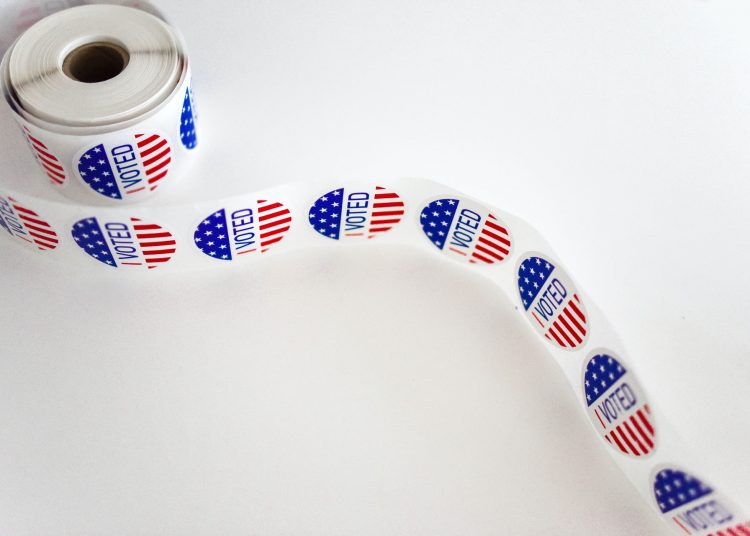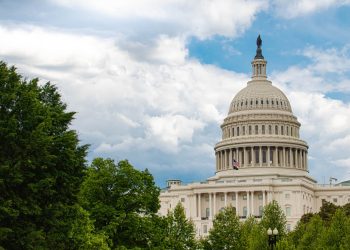DES MOINES, Iowa – U.S. Rep. Cindy Axne, D-Iowa, cast the lone vote from Iowa for H.R. 4, the John R. Lewis Voting Rights Advancement Act of 2021, that advanced in the U.S. House on Tuesday by a 219 to 212 party-line vote.
The bill responded to Republican election reform bills that have passed in 12 states, including Iowa.
Iowa’s legislation signed by Gov. Kim Reynolds made significant changes to Iowa’s election law, including reducing Election Day voting hours and shortening the early voting period.
Axne called the bill an attempt to suppress voters at a town hall in West Des Moines this summer.
“Across our country and right here in Iowa, voting rights are under attack. Not only are state legislatures are passing new voter suppression laws that limit access to the ballot and make it harder to vote, but courts are also eroding the legislation we already have in place to protect voting rights,” Axne said in a released statement.
“The Voting Rights Act of 1965, one of country’s greatest victories from the Civil Rights Era, ensured for decades that localities could not enact discriminatory measures that undermine Americans’Americans’ right to vote. But recent court rulings have stripped away some of its most essential protections. I’m proud to help get legislation named for my late friend and voting rights champion John Lewis passed through the House today to restore and update the Voting Rights Act to defend against voter suppression and give citizens the foundation to challenge attacks on their rights,” she added.
Axne’s office states H.R. 4 creates a new coverage formula for preclearance that hinges on a finding of repeated voting rights violations in the preceding 25 years. They said the legislation also seeks to strengthen the ability for Americans to challenge laws that limit voting rights, a provision of the Voting Rights Act that was weakened last month by the Supreme Court’s ruling in Brnovich v. DNC.
The bill also establishes nationwide “practice-based preclearance,” which would ensure preclearance is required for all jurisdictions that engage in certain kinds of proposed changes to voting rules, including reductions of polling locations or polling hours or changing procedures regarding maintenance of voter registration lists.
Critics of the bill call it a Democrat takeover of America’s elections.
“Despite continuing improvements in access to both registration and voting, Democrats have continued their 20-year crusade to takeover America’s elections, rig the system in their favor, and silence conservative voices to preserve their power. No, election integrity isn’t racist, widespread ‘voter suppression’ isn’t real, and Republicans aren’t imposing ‘new Jim Crow’ laws on minority voters. In reality, it has never been easier for Americans of every voting group to register and vote than it is today,” National Chairman of the Election Transparency Initiative and former Virginia Attorney General Ken Cuccinelli said in a released statement.
“Nancy Pelosi’s politically-driven elections takeover is so unpopular she had to circumvent regular order to force it through the House, without adequate committee review, public debate or deliberation over the final bill text, which ballooned into a grab-bag of liberal policies to effectively abolish voter I.D., subject states to crushing mandates and penalize them for cleaning up their outdated voting procedures. We urge every member of the Senate to reject this legislation deceptively presented under the guise of ‘voting rights’ and instead support free and fair elections voters can trust,” he added.
Iowa Secretary of State Paul Pate, a Republican, criticized a similar bill as a federal takeover of elections.
“The U.S. Constitution clearly empowers the states, not the federal government, to oversee elections. Many of the provisions the federal government wants to force on every state, Iowa already has in place. However, other parts of the bill would strip away protections we have enacted to ensure the sanctity of the vote,” he wrote in an op/ed at The Iowa Torch on May 17.
U.S. Rep. Randy Feenstra, R-Iowa, said he was a “strong no.”
“I was a strong “no” vote on H.R. 4, Democrats’ latest attempt to take the power to make election laws away from states & put it into the hands of liberal Washington politicians. This is nothing more than an attempted power grab & a blatant infringement on states’ rights,” he tweeted.
U.S. Reps. Ashley Hinson, R-Iowa, and Mariannette Miller-Meeks, R-Iowa, voted against the bill.















